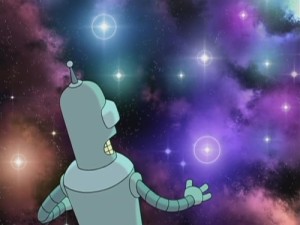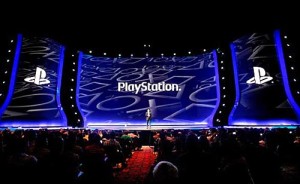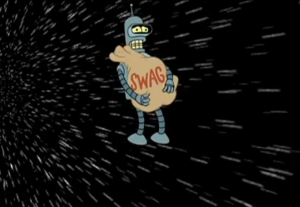When Things Go Right
“When you do things right, people won’t be sure you’ve done anything at all.”
It’s amusing where you can find inspiration for an article’s purpose.
My inspiration for this: Deep in the seasons of Futurama, Bender ‘Bending’ Rodriguez (a bending robot, before you ask) becomes the worshipped deity of a society built on his stomach. By a species of creatures smaller than his fingers. He is tasked with how to handle the mini-civilization now nestled on his body, with a moral choice of either help them, purposefully destroy them, or ignore them – each with various ways of accomplishing either and equally various consequences. Throughout the journey, he meets a galaxy that can communicate with him and offer sage advice.
Spoiler alert: he tries ‘help’ and ‘ignore,’ ultimately leading to his civilization’s destruction. Further spoiler: You won’t be getting anything more out of me. Even If I related every detail, though, it’s a plot with potentially sobering and profound questions: how do you handle maintaining a civilization that you might not have intended on supporting? What is the morally sound choice? What do we do even if we identify that choice and choose to uphold it?
The quote above is the response Bender gets from a god-like entity that hopes he’ll pull a lesson from it.
While I can’t say Bender necessarily drew a lesson from it, the message can be interpreted (and thus applied) in a variety of circumstances. Home, for example, poses a similar challenge to its overseers. How do you keep the microcosms of users happy while avoiding breaking immersion and feeling like you’re overstepping your boundaries? Is there a balance between a light touch and a heavy one? How do you cope with a potpourri of vile spewing forth from a gaggle of ungrateful little gobs determined to bring you down?
The biggest issue for Home here is one bare-bones fact everyone needs to know (and likely does know already): everyone has an assumption of ‘normal’ when it comes to function. Individually we might differ slightly but ultimately the group develops a baseline of typical experience, (usually) derived from experiences from similar products and generalizations of ‘good customer service.’ And quite often, they will hold you to that baseline and never give it a second thought, at least until it goes wrong. Any company, whether they’re making another Call of Duty or Home’s next generation, must recognize this component when dealing with their customers and approach it accordingly.
The trick, for both users and developers, is knowing what Bender’s lesson means for us. As users, we are the civilization living on the shiny metal chassis of Home; Sony is Bender, at least so far as they are in charge of Home’s continued existence. Both are locked in a struggle where their goals occasionally intersect: the users want Home running for as long as possible (emotionally invested as we are) while Sony wants assurance that it’ll be financially viable for them to keep the lights on, let alone make a sequel.
And as diverse as production costs can be, the general consensus is clear: video game costs are on the rise, having shattered the multi-million dollar budget barrier in Kool-Aid-esque stride. $60 for a new game won’t cover much if users aren’t convinced to buy it, though it needs to so it’s clear why a company needs more guarantees from its target (or periphery) audience. Pitching a game without an outstanding established financial history and aimed towards a niche audience (whether the audience views themselves as ‘niche’ notwithstanding) is now riskier as budgets balloon into the millions. It’s enough that while many attempts to gauge an average may be considered mass speculation even at its best (http://kotaku.com/how-much-does-it-cost-to-make-a-big-video-game-1501413649), it’s clear that the PS4 generation’s AAA titles are going to eclipse the price tags for comparable AAA titles during the previous generation.
And don’t even get into how it compares to, say, the Atari days.
Even with Home, this is a topic we’re dealing with as we look towards an uncertain future: how long can we support it before Sony decides turning the lights off is the best option? What is Sony’s long-term plan? How much does it cost to run Home’s servers indefinitely, let alone the cost of item production? With many developers seeking outside opportunities (alongside JP and Asia Home’s closings), how much is any developer earning from sales? Is there anything we can do to assuage any issues?
For me, one issue is paramount: the ‘periphery’ of something, the small bits in the background that you don’t draw attention to purposefully (if at all), are as important, if not more important than, the major updates you advertise with gusto. Your audience won’t always know you’re doing it – and speak even less of it – but they will subconsciously be grateful when it’s all working properly.
What this means, for developers and users alike, is what you do when the audience isn’t (legally) allowed to watch you will prove just as vital to the lasting power of a product as when they are allowed. All users get to witness nine time out of ten (if not more so) is the end result of an inordinate amount research, development, coding, testing, coffee breaks, head-banging moments, and more.
It’s a reminder that for every weekly store update, client update, and maintenance downtime, there are numerous jobs on the ‘other side’ (from the consumer’s perspective) the audience typically won’t get to see. ‘Typically’ is crucial wording here since the users can’t expect to be privy to the functions of Home’s inner machinations, but it does happen. NorseGamer and Terra_Cide both witnessed the dev side of affairs (LOOT and LKWD respectively), with their own stories to share.
However, their stories are unique. It’s the ‘peek behind the curtain, see the real Wizard of Oz’ kind of moment that many of us wish we could have but are unlikely to receive. In the meantime, we will typically only hear what Sony (and devs) tends to share – and while they may share some behind-the-scenes snippets (re: LOOT), that’s also something of a rarity. We must accept that we will not hear the complete story the first time through, and consider ourselves lucky if we ever will.
The message we draw from this experience is the same whether we’re discussing PlayStation Home, a video game we thoroughly enjoy, or anything whatsoever in life. As users, we aren’t responsible for more than enjoying the fruits of a developer’s labors. Obviously, if we aren’t enjoying said fruits, such dissatisfaction will lead us (and our finances) elsewhere.
However, as users, we don’t hear the complete story. Even in this day and age, where the communicative distance between consumer and developer is reduced by online services, NDAs and other gnarly beasts of business burden seek to hinder companies from legally revealing everything. Attempts to pull back the curtain can wreak havoc if handled poorly – hence why NDAs exist – and a certain level of transparency may not be achieved any time soon, if ever.
End result: even under the best of circumstances, unless we commit to some highly illegal (or, best case scenario, morally grey) conduct, we won’t see every nook and cranny within a company’s infrastructure. Plenty of what goes on within (and outside) Home is handled in secret, decided behind closed doors, and acted with nary an attempt to bring attention to it.
It’s perhaps the most thankless part of developing and supporting Home. On the one hand, when the nitty-gritty functions properly, no one gives it a second thought. On the other, if it fails (or if silence falls for too long), we will notice and demand action. You don’t get into the framework side of Home for the fame and likes – you do it because you know Home and its users benefit from the hard work and toil from it all.
And given the current environment, it’s perhaps no surprise that we’re all finally turning inward and asking the important questions about Home. Questions that may decide Home’s very fate . . .
Home’s Future: Doing Things Noticeably
The biggest news to rock PlayStation Home was the E3 announcement. Bucking the trend set by years past, Sony unveiled an app for the PlayStation 4 (without offering PlayStation 3 users the same) while offering, perhaps more pertinently, no E3 booth for Home.
It’s an interesting decision in context of the past two years, and it brought about a huge user backlash that shows how invested we are, even if we aren’t perfect about assessing the situation. Has history been kind to all involved? What can we learn about doing things right?
Let’s start a little late into the history. 2012 became the Year of the Game, a move by Sony to attract non-users into the fold while not pushing the social enhancements nearly as far. On its face, the move in its broadest form made some sense, asking some serious questions – is the current dedicated userbase capable of sustaining Home enough for the foreseeable future? If not, is adding more games the proper course of action? Are we willing to take the potential lapse in social enhancements to bring in more users?
With Japan and Asia Region’s Homes no longer supporting new content a year later, the 2012 decision to improve the gaming offerings could’ve (and perhaps should’ve) prompted more analysis on what we could be doing to sustain Home. When the games failed to draw the attention (and long-term use) Sony intended, their focus turned back inward. Its long-term users received numerous social improvements, with 2013 especially becoming the year of the LMO. 2014 witnessed the introduction of avatar interactions, allowing numerous avatars to perform moves such as dances and basic human interactions (kissing and handshakes, e.g.) with each other. While these improvements received accolades from the ‘whales’ of Home, we’re at a point where we ask a sobering question: Is it too little, too late? Really, is there anything more we can do?
When a userbase becomes aware of the machinations of Home to the point that they ask who’s steering it where, it generates a Chicken Little effect when left unattended for too long. Dissatisfaction and doubt rise, making it less likely users will spend money – worsening as they are left without any clear answers. If we face a hazy future, we seek answers; without them, we may doom it to fail out of caution.
It’s what Bender faced when his civilization became aware of his existence. When the users are made aware of the influences of another group or individual upon their world, they take a natural interest in how such an influence affects them. The balancing act becomes knowing how to keep the world running smoothly without the users being caught up in worrying about their continued existence. Do things wrong and the users will begin to question their involvement.
It’s why the lack of E3 in Home hurts, as does the fate of new content in Japan and Asia’s Home and, to a different extent perhaps, 2012’s olive branch to the outside world. All in their own ways, they brought entrenched feelings to the surface. When Home’s machinations slid up and down the scale of quality, users received reason to wax existential about Home, to ask the tougher questions and wonder if now’s the time to give Home a eulogy. Which raises a valuable, if potentially depressing, question . . .
If we done things right, would we even be discussing this right now?
Given Home’s lifespan, we’d be facing some of these issues either way. The question is more in terms of scope. Sony’s behaviors on various matters, combined with everything from the PSN hack to the ‘year of the game,’ stirred up all sorts of issues that compound the factor. Had things run more smoothly, I suspect we wouldn’t be dealing with the Anger and Bargaining stages of grief nearly as much as we are now.
And whether we admit it openly or not, the current atmosphere suggests we’re in the stages of grief, with a reversal of Bender’s fortunes. Whereas he faced the grim reality that an entire civilization ceased to exist despite his best efforts, we’re the civilization facing the reality Home may not exist by fiscal year’s end despite our best efforts. It appears, from our side, that things didn’t go entirely right because if they did, we wouldn’t be worried about giving Home a proper send-off.
Now it’s the one thing occupying our thoughts the most.
Questions, Questions, and Summations
As a result, as Home continues through what feels like the tail-end of its lifespan, we ultimately get to whether Home was treated with the utmost care. Numerous decisions raise a few eyebrows, pulling into question whether anyone knows what’s truly going on. Questions such as: Why wait until 2013 at the earliest to bring some of the most lauded social advances? Why spend most of 2012 on gaming ventures that ultimately failed to draw a new crowd, let alone turn a needed profit? Are NA and EU’s Homes going to meet the same fate as JP and Asia, or is a PS4 port of Home on the horizon? Is a direct port of Home even a good solution, or should we go Six Million Dollar Man on the whole thing and rebuild it with better technology?
These questions all ultimately point to one important question: where are we going from here?
To ask such a question, coupled with the rise in emotional spiels, betrays the biggest issue about Home’s current status amongst its users, in that they aren’t convinced Sony is handling things properly. Had everything been handled smoothly, no one would be so concerned about the near-future. 2015 is half a year away and to be this fearful about six months, let alone another year, means something isn’t going well.
My take: we aren’t going to improve the situation by playing with doomsday predictions. Home will inevitably end, and perhaps we’re already witnessing its descent, but what needs to happen is more openness about the future of Home, both from users and (perhaps more importantly) Sony. When things go right, it isn’t that people don’t notice your handiwork – it’s that they don’t worry about your handiwork. They can go through a healthy emotional investment with Home when they aren’t concerned about the walls closing in. By the time the walls do close in, they’ll be prepared to handle every stage of grief – rather than become stuck perpetually on two or three stages.
Asia and Japan Homes have already received their notices. NA and EU Homes are potentially following their lead, with a rich tapestry of business decisions making everyone feel on edge. It is understandable to feel despaired by it all, but ultimately we don’t want to hear everything to feel better about the situation. Just enough to know what to expect from here on out.
After all, when we do things right, we would be worried more about enjoying our lives. And that’s the greatest part about being behind the scenes, knowing that people won’t have to worry.
Share
| Tweet |






Certainly a good assessment of home. One of home strengths and weaknesses is that it doesn’t do anything really wrong, but it has nothing really earth shattering about it.
Take the year of the game, none of those games were bad, but none were good, and none were certainly better than what I could buy from the bargin shelf for the ps3. Fashion is ok in home, but theres other social applications that let you design and even sell your own creations. music and social events are ok on home as long as you know where your going. Again it’s easier to find and have a bigger variety of these on homes competitors. Second life and imvu have some really great bits and some really poor bits. Home has stuff and nothing it can call great. Can you imagine the home community given the ability to buy and sell user created items and spaces. That’s the issue what makes second life and imvu different and probably outlast home is they are run by the community and for the community.with the main company over seeing it.
Seriously, this is “THE” article that was needed. Very thorough and convoys inquiries on how can Home improve for its potential sequel.
All I desire is for my existing items to be transferred to the next Home iteration and for better organization.
I like the six million dollar man direction!
Listening to so much noise has to be hard for a team of developers.
Sony has the right plans. Just hope the economy itself will be there to support the decisions such a great company has to offer. I have really, really enjoyed PlayStation Home. With all of it’s ups and downs.
Here is a question.
What is PlayStation Home to Sony?
Norse, Terra, and HSM have already commented.8)